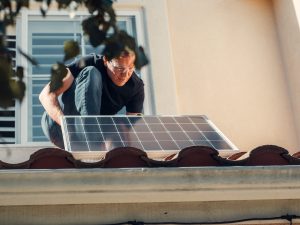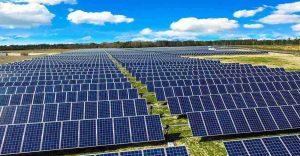Will Solar Panels Get Cheaper in 2023?

Will Solar Panels Get Cheaper in 2023?
Will Solar Panels Get Cheaper in 2023?
- Introduction
Solar energy has become a pivotal player in the quest for sustainable and ecofriendly power sources. One of the critical aspects that intrigue both environmental enthusiasts and potential investors is the cost of solar panels. In this article we’ll explore the dynamics influencing the pricing of solar panels and investigate whether 2023 will witness a notable drop in costs. Will Solar Panels Get Cheaper in 2023?
- Current State of Solar Panel Costs
Recent Trends in Solar Panel Prices
Over the past few years solar panel costs have experienced fluctuations influenced by various factors such as technological advancements market competition and government policies.
Factors Influencing Costs
Understanding the intricacies of what drives the costs of solar panels is crucial. Factors like raw material prices manufacturing techniques and global economic conditions all play a role.
III. Technological Advancements
Emerging Solar Technologies
The continuous evolution of solar technologies holds the promise of more efficient and costeffective panels. Exploring these innovations provides insights into the potential cost reductions.
Impact on Costs
Technological advancements not only enhance efficiency but also contribute to the reduction of manufacturing expenses ultimately impacting the overall cost of solar panels.
- Government Policies
Government Incentives for Solar Adoption
Many governments worldwide offer incentives to encourage the adoption of solar energy. Understanding these policies is vital to predicting the trajectory of solar panel costs.
Role in Cost Reduction
Government support can significantly impact the cost of solar panels by providing subsidies tax credits and other financial incentives.
- Market Competition
Overview of the Solar Panel Market
The solar panel market is highly competitive with numerous players striving to dominate. This section delves into how this competition affects prices.
Competition Driving Price Changes
As companies vie for market share the resulting competition often leads to innovations in manufacturing processes and pricing strategies potentially driving down costs.
- Environmental Impact
Sustainability and EcoFriendliness
Apart from cost considerations the environmental impact of solar energy is a key driver for its adoption. Sustainable practices may contribute to longterm cost benefits.
LongTerm Cost Benefits
Investing in solar panels not only aligns with ecofriendly initiatives but also presents longterm financial benefits making it an attractive option for many.
VII. Global Market Analysis
Regional Differences in Solar Panel Costs
Solar panel costs vary across regions due to factors like sunlight availability government policies and local manufacturing capabilities.
Future Predictions
Analyzing regional trends allows us to make informed predictions about the future direction of solar panel costs on a global scale.
VIII. Industry Insights
Expert Opinions on the Future of Solar Panel Costs
Industry experts provide valuable insights into the factors shaping the solar panel industry shedding light on the potential directions for costs.
Key Factors Shaping the Industry
Understanding the key factors influencing the solar industry provides a comprehensive view of the landscape and its future developments.
- Advantages of Investing in Solar
LongTerm Financial Benefits
Investing in solar panels offers not only environmental benefits but also longterm financial gains making it an attractive option for both individuals and businesses.
Positive Impact on the Environment
Beyond financial gains contributing to environmental preservation is a significant advantage of solar energy adoption.
- Challenges and Considerations
Potential Obstacles in the Solar Industry
Despite the promising future the solar industry faces challenges. Addressing these challenges is crucial for sustained growth and cost reduction.
Ways to Address Challenges
Exploring innovative solutions and policy adjustments can help overcome obstacles fostering a more conducive environment for solar energy.
- Consumer Perspectives
How Cost Influences Consumer Decisions
Understanding consumer behavior is pivotal. This section explores how the cost of solar panels influences the decisions of potential consumers.
Increasing Awareness and Adoption
As awareness of environmental issues grows consumers are more likely to consider solar energy options potentially driving down costs through increased demand.
XII. Innovations in Manufacturing
Breakthroughs in Production Techniques
Innovations in manufacturing play a crucial role in cost reduction. This section explores the latest breakthroughs that contribute to more affordable solar panels.
Effect on Overall Costs
Efficient manufacturing processes directly impact the overall costs of solar panels making them more accessible to a broader audience.
XIII. Future Projections
Predictions for Solar Panel Costs in 2023
Considering the trends and factors discussed we delve into expert predictions for solar panel costs in the year 2023.
Factors Contributing to Changes
Various factors including technological advancements policy changes and market dynamics are likely to shape the future landscape of solar panel costs.
XIV. Final Word
In the trajectory of solar panel costs in 2023 is shaped by a myriad of factors. From technological innovations to government policies and market dynamics the future of solar panels appears promising with the potential for reduced costs making sustainable energy more accessible.
- FAQs
Q: Are solar panels worth the investment in 2023?
A: Absolutely given the longterm financial benefits and positive environmental impact investing in solar panels is a wise decision.
Q: How do government policies affect solar panel costs?
A: Government policies including incentives and subsidies can significantly impact the cost of solar panels by making them more affordable.
Q: What role does technological innovation play in cost reduction?
A: Technological innovations contribute to more efficient manufacturing processes directly impacting the overall cost of solar panels.
Q: Are there any downsides to using solar energy?
A: While solar energy has numerous advantages challenges such as intermittent power generation and initial setup costs should be considered.
Q: How can consumers contribute to the reduction of solar panel costs?
A: Consumers can contribute by increasing demand staying informed about incentives and supporting sustainable practices.

Source of Image: https://www.pexels.com/photo/solar-panels-on-outdoor-construction-6431820/






